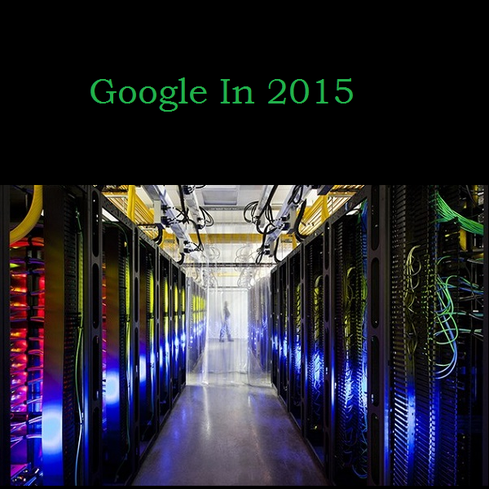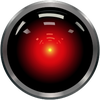No, AI Won’t Kill Us AllNo, AI Won’t Kill Us All
When famous technologists and scientists fear the menace of thinking machines, it's time to worry, right? Not really, because computers lack the imagination to wreak havoc, says one AI expert.


8 Google Projects To Watch in 2015
8 Google Projects To Watch in 2015 (Click image for larger view and slideshow.)
The sentient, self-aware, and genuinely bad-tempered computer is a staple of science fiction -- the murderous HAL 9000 of 2001: A Space Odyssey being a prime example from the genre. Recently, though, more than a few of the world's top technological and scientific minds -- most notably Bill Gates, Stephen Hawking, and Elon Musk -- have warned humanity of the threat posed by artificial intelligence. In fact, AI has even been named one of the "12 risks that threaten human civilization," according to a new report from the Global Challenges Foundation and Oxford University’s Future of Humanity Institute.
Whoa. So perhaps it's time to step back from the precipice of Skynet-like apocalypse? Maybe focus on making computers a little less smart -- or at least less autonomous?
No, actually it’s a good time to take a deep breath and relax, says Dr. Akli Adjaoute, founder and CEO of Brighterion, a San Francisco-based provider of AI and machine-learning software for healthcare and identity fraud, homeland security, financial services, mobile payments, and other industries. Adjaoute has a PhD in artificial intelligence and mathematics from Pierre and Marie Curie University in Paris. He has spent the past 15 years developing AI technologies for commercial applications.
In short, Adjaoute knows his stuff, and he says AI's ominous potential is vastly overblown.
In a phone interview with information, Adjaoute provided a very simple reason the fear of malevolent, thinking machines is unfounded: Computers, unlike people, have no imagination.
"Suppose I'm on the 10th floor, and I'm talking to you from my office," said Adjaoute. "I say, 'Hey, could you please take this bucketful of water, and run to the reception [area] on the first floor?' What happens? You'll say, 'Oh, I will get wet, because the water will splash on me if I run.'"
The human mind, he noted, can imagine that carrying an open, sloshing bucket of water across office floors (and possible down several flights of stairs) will likely cause water to spill out of the bucket and onto the carrier's clothing. That's imagination at work.
A computer lacks similar cognitive capabilities, however. Rather, it's very, very fast at carrying out instructions.
Even powerful AI systems such as IBM's Jeopardy!-winning Watson, don’t mimic the human brain. (The same can be said for IBM's Deep Blue computer, which in 1997 defeated world chess champion Garry Kasparov in a six-game match.)
"We don't claim that Watson is thinking in the way people think. It is working on a computational problem at its core," IBM research scientist Murray Campbell, one of the developers of Deep Blue, told the New York Times in 2011.
"The computer doesn't even know it's playing chess," said Adjaoute of Deep Blue. "It's just another level of stupid calculation."
[ Read more about Watson's voice. ]
As Allen Institute CEO Oren Etzioni recently told CNBC, AI's critics may be blurring the distinction between machines capable of performing instructions very efficiently, and truly autonomous systems that think and act independently.

"How are you going to have self-awareness if all the program does is look to the data, and analyze it with zeros and ones?" said Adjaoute. "How will it be aware of what it's doing? It's impossible."
He added: "I am tired of seeing artificial intelligence become the boogeyman of technology. There is something irrational about the fear of AI."
Attend Interop Las Vegas, the leading independent technology conference and expo series designed to inspire, inform, and connect the world's IT community. In 2015, look for all new programs, networking opportunities, and classes that will help you set your organization’s IT action plan. It happens April 27 to May 1. Register with Discount Code MPOIWK for $200 off Total Access & Conference Passes.
About the Author
You May Also Like






